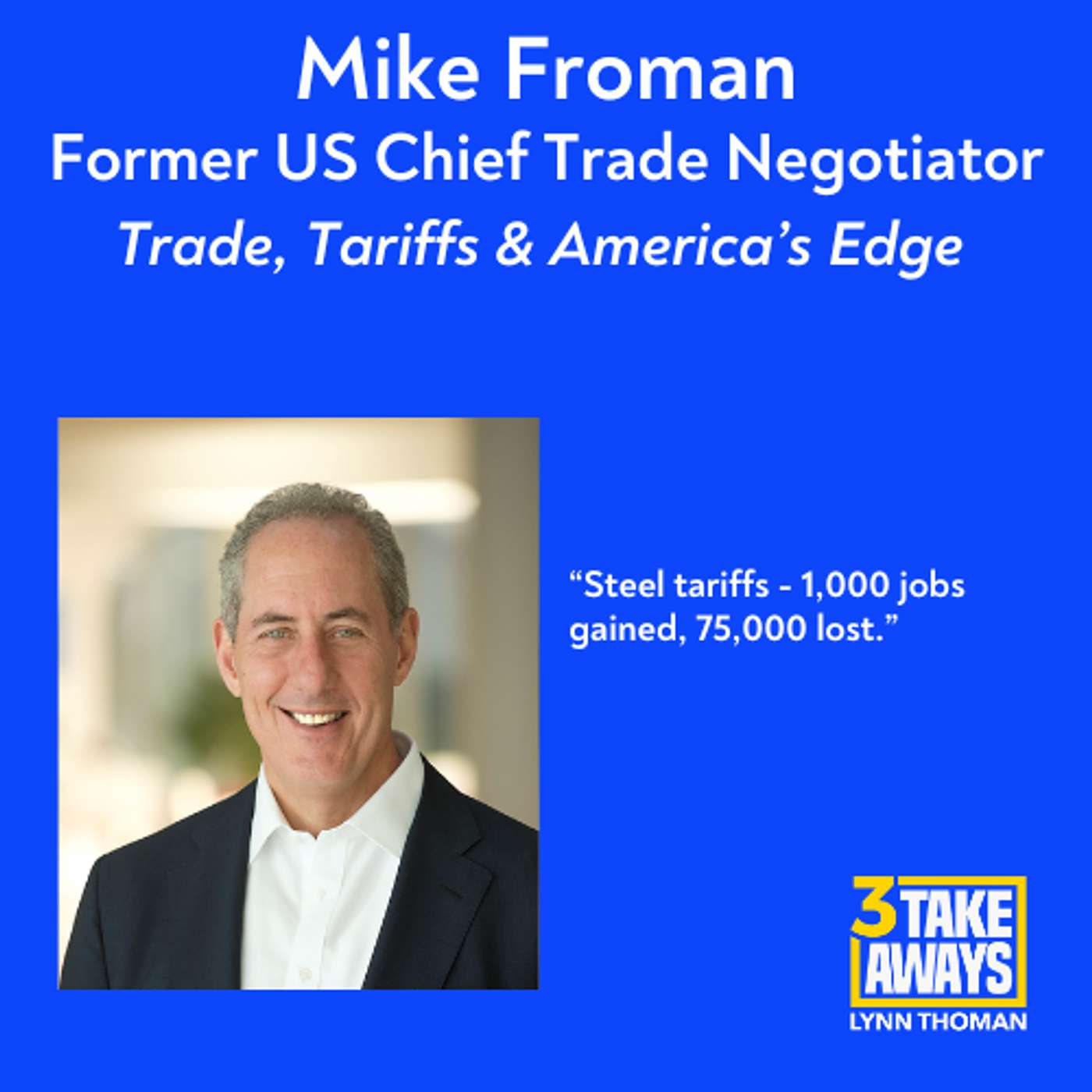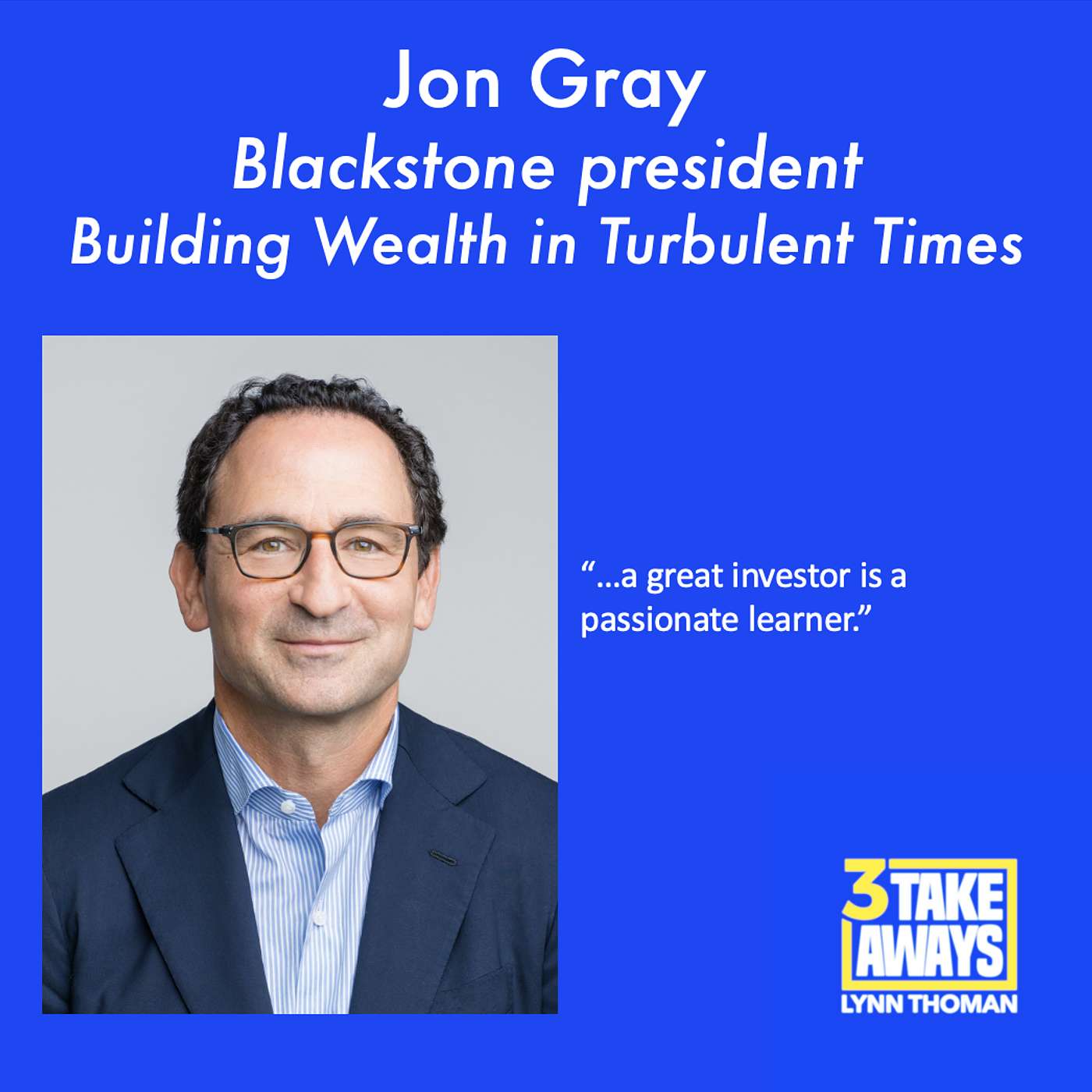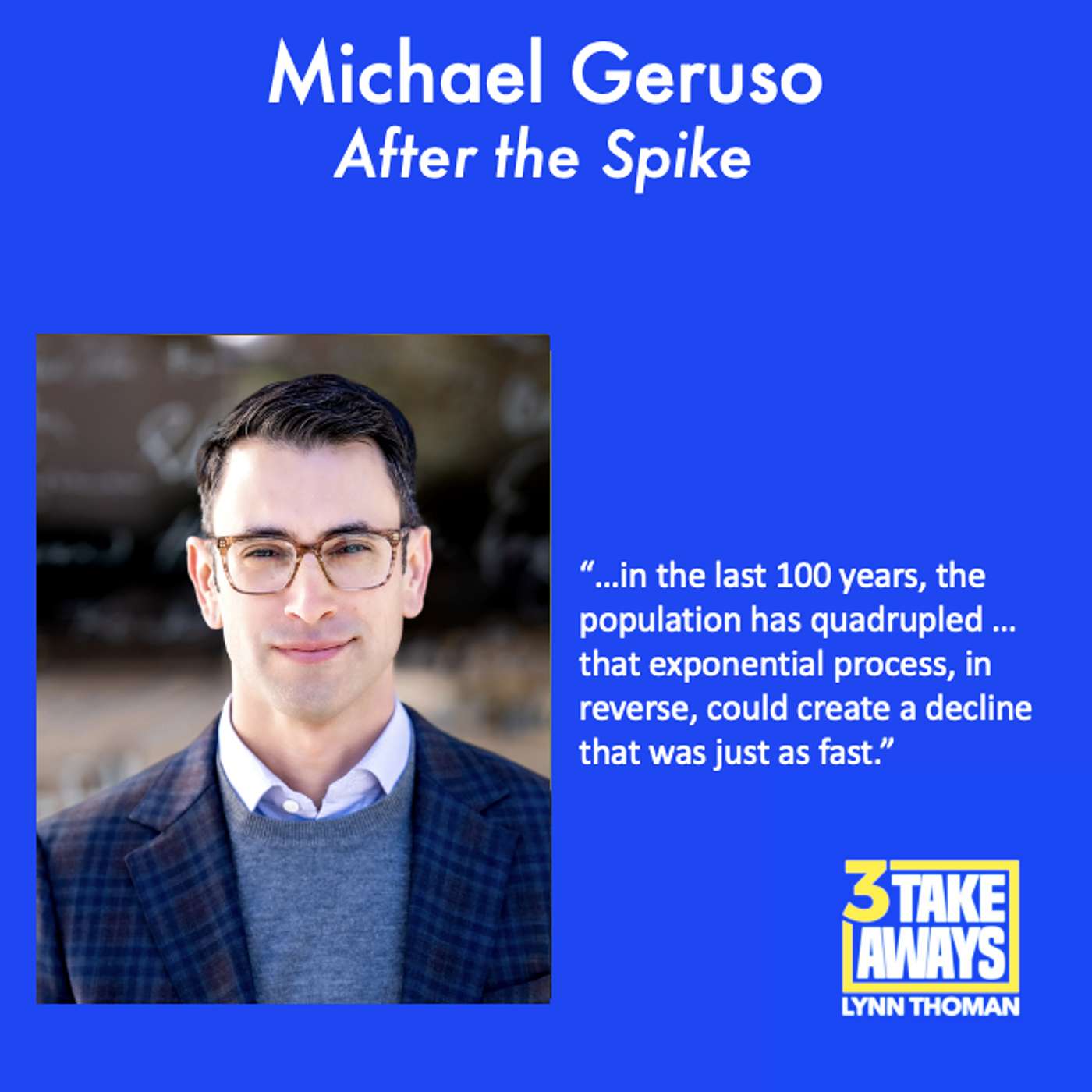
3 Takeaways
3 Takeaways features insights from the world’s best thinkers, business leaders, writers, politicians, scientists and other newsmakers. Each episode ends with 3 key takeaways to help you understand the world in new ways that can benefit your life and career. Hosted by Lynn Thoman.
- Update frequency
- every 7 days
- Average duration
- 24 minutes
- Episodes
- 267
- Years Active
- 2020 - 2025

3 Habits That Separate Great Communicators from Everyone Else (#266)
Why do some people seem to effortlessly connect — while the rest of us stumble through awkward small talk or tense conversations? The secret isn’t charisma or confidence — it’s a few learnable habits…

America’s Edge: More Barriers or More Innovation? (#265)
Every country wants strong industries and good jobs. But do tariffs actually deliver?
Few people have been closer to the frontlines of global trade, tariffs, and innovation than America’s former chie…

Space: The Invisible Infrastructure Behind Modern Life — And Its Growing Risks (#264)
Space may look empty, but it’s crowded, fragile, and under threat. Former Congresswoman Jane Harman and Lieutenant General (Ret.) Nina Armagno — former U.S. Space Force Director of Staff who oversaw …

Inside the Hook Model: Secrets Companies Use to Keep You Scrolling and How To Break Free (#263)
Variable rewards once powered slot machines; now they’re inside your pocket. Behavior-design expert Nir Eyal shows how modern apps turned casino psychology into daily routine. He unpacks the psycholo…

Zanny Minton Beddoes on America, China, and a World in Flux (#262)
The global order that brought decades of peace and prosperity is coming apart. The Economist’s Editor-in-Chief Zanny Minton Beddoes takes us inside the world’s power centers, where America is both ad…

No Way Out with Former Chair of the Council of Economic Advisers Greg Mankiw (#261)
Imagine owing over $100,000—not for a home or college, but simply for being an American.
That’s each citizen’s share of the nearly $40 trillion U.S. national debt—and it’s climbing fast. The governmen…

From Bits to Brains: How AI Sees, Talks, and Learns (#260)
How does AI go from predicting the next word to powering robots that navigate the real world?
Princeton computer science professor Sanjeev Arora explains how today’s models learn, adapt, and even teac…

Hype vs. Reality: Crypto and Stablecoins (#259)
Crypto runs on stablecoins — and they’re far less stable than they sound.
Bloomberg investigative journalist Zeke Faux followed the money behind the scenes. What he uncovered will change the way you s…

The Long Game: How to Build Wealth in Turbulent Times with Blackstone President Jon Gray (#258)
How do the savviest investors navigate today’s uncertainty? Jon Gray, President of Blackstone, one of the world’s most successful asset management firms, shares the timeless principles that helped gr…

Goodbye Baby Boom—Hello Population Bust: How a 60% Drop Could Change Everything (#257)
Global birth rates are collapsing—sometimes to half the level needed to keep populations stable. UT-Austin’s Michael Geruso explains how that trend could shrink the world’s population from eight bill…

The Knowledge Illusion: How Overconfidence Shapes Our Lives (#256)
We’ve landed on the moon and built global networks—yet most of us don’t understand how a toilet works. Cognitive scientist Philip Fernbach explores the paradox of human intelligence: our success depe…

The Surprising Science Behind Falling—and Staying—in Love (#255)
Love isn’t just a feeling—it’s a science. Arthur Aron, the psychologist behind the 36 questions that went viral, shares what really makes people fall and stay in love. You’ll hear why new experiences…

Former National Security Advisor Jake Sullivan on What Xi and Putin Are Really Like Behind Closed Doors (#254)
Jake Sullivan spent four years at the highest level of U.S. foreign policy—sitting across the table from Vladimir Putin, Xi Jinping, and leading the national response to crises like Ukraine, Taiwan, …

Editing Life Itself: A Conversation with David Liu, the Scientist Who’s Rewriting DNA and the Future (#253)
What if we could rewrite the code of life—just like editing a Word doc?
Gene-editing pioneer David Liu takes us behind the scenes of the revolutionary tools transforming medicine. He’s the Harvard sci…

This Is Your Brain on Beauty — And It's Powerful (#252)
What if music, color, scent, and art could actually change your brain? Science now shows they do.
Join Susan Magsamen, Executive Director of the International Arts + Mind Lab at Johns Hopkins, as she …

Why America’s Poorest State Is Richer Than France (#251)
Mississippi is richer than France. No, really. The poorest U.S. state now has a higher GDP per person than France, the U.K., Italy, and Spain. How did that happen? Don’t miss this eye-opening episode…

The U.S. Alone Can’t Compete with China. Here’s What Absolutely Can. (#250)
China is on the march, is very determined, and has some significant advantages over the U.S. What are they and how should we respond?
Two esteemed China experts, former U.S. Deputy Secretary of State…

The 50% Enigma: Why Trump’s Vote Mirrors the Past (#249)
As the dust settles on the 2024 presidential election, now is an excellent time to take a fresh, clear-eyed look at what really happened. Join us as Larry Bartels, political scientist extraordinaire …

Swipe, Tap, Ghost: The New Rules of Human Connection (#248)
What if your phone is quietly changing your brain—and your relationships? The brilliant Christine Rosen explores how digital life is reshaping everything from childhood to public discourse, often in …

Your Brain’s Being Hijacked: The Hidden Psychology Behind Everyday Decisions (#247)
Ever wondered why we sometimes act irrationally, even when it’s not in our best interest? Ori Brafman has, and his answers are enlightening. Here, he talks about the hidden forces and human emotions …